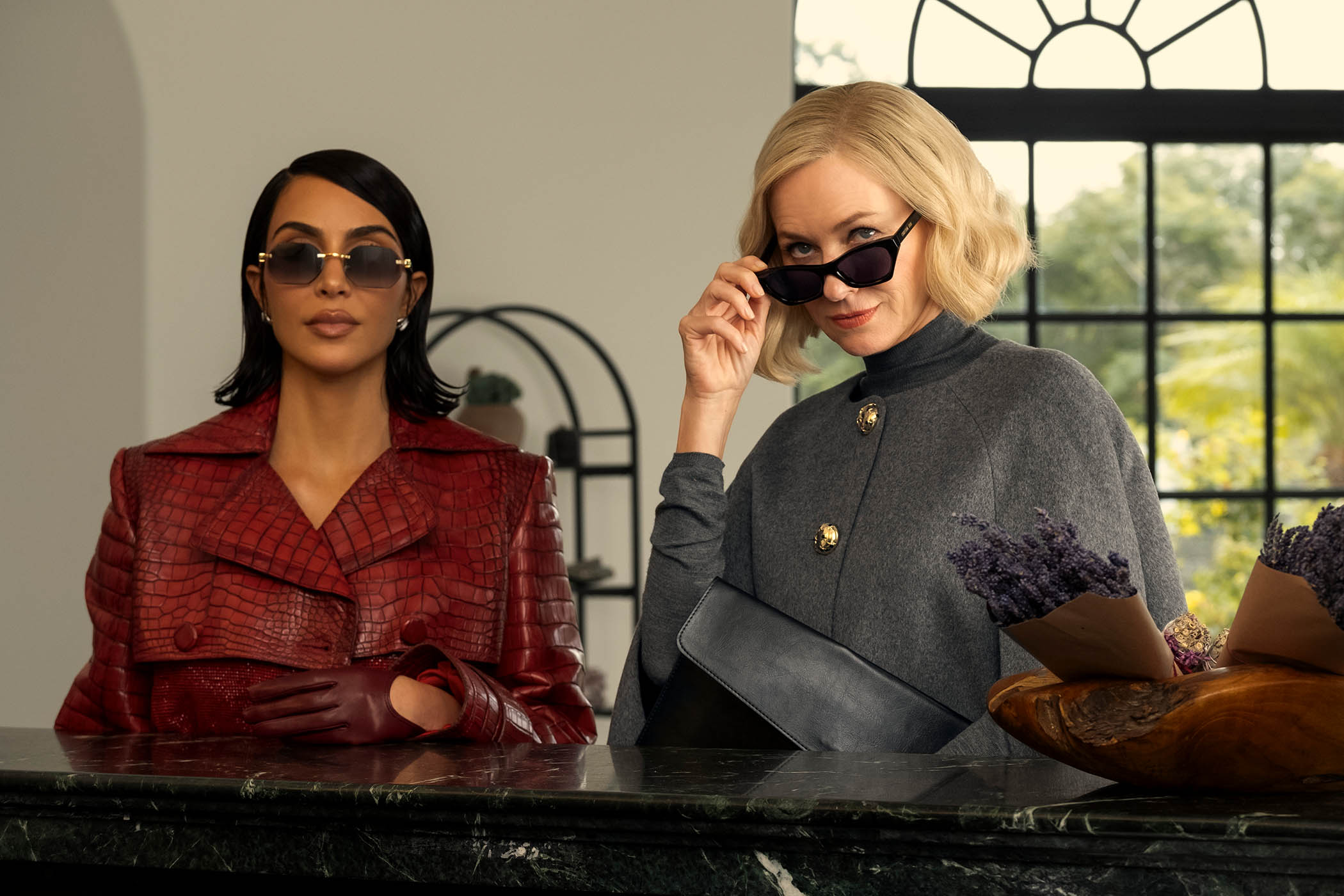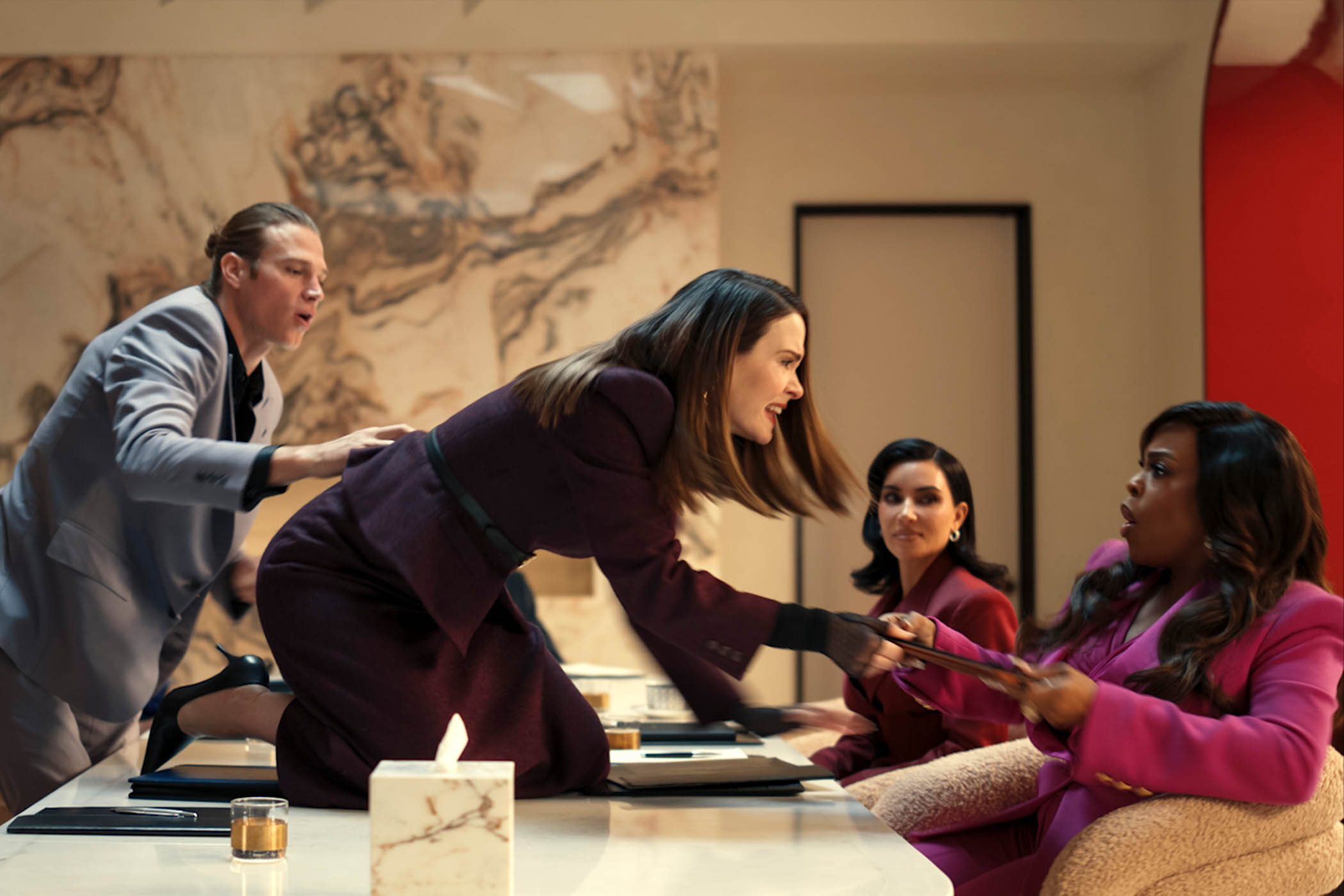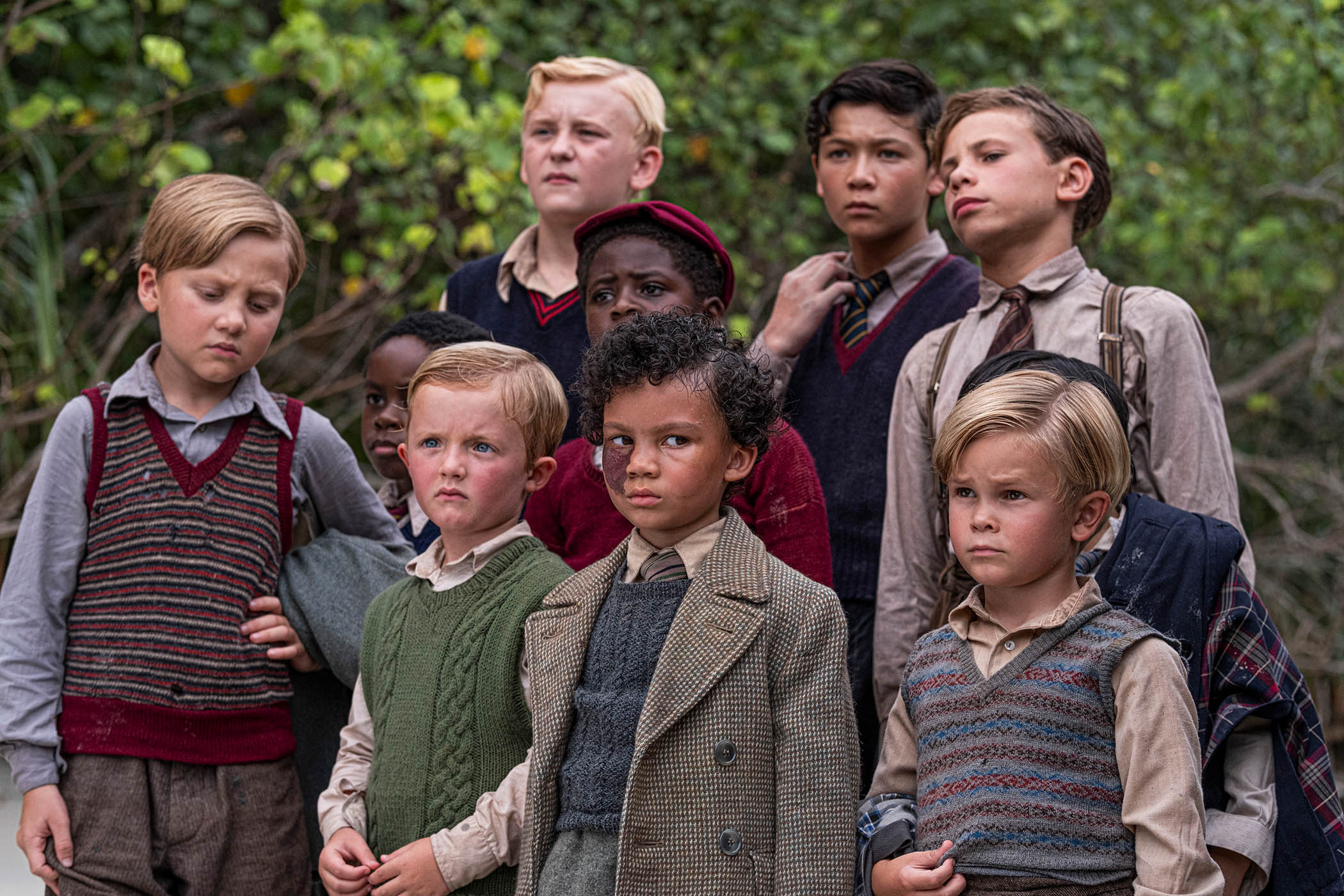Last week saw the launch of All’s Fair, a legal drama on Disney+ that boasts Kim Kardashian, Naomi Watts and Niecy Nash-Betts as stonkingly rich and glamorous divorce lawyers, an all-woman team that only represents women (is that legal?). Plus, there’s Sarah Paulson as their mad rival, and Teyana Taylor and Glenn Close with smaller parts. Star-studded stuff: but only in terms of celebrity. The show, created and co-produced by Ryan “Glee” Murphy, has been slated by reviewers across the board. Zero stars in the Guardian. Zero stars in the Times. The Atlantic’s reviewer said, “I can’t call it a television show, because it isn’t one.” USA Today called it “an unmitigated disaster” and “the worst TV show of the year”.
Oh dearie me, you may think – especially when you learn that Kim K was worried All’s Fair might not land well. “It’s not guaranteed,” she said, wisely, on her very-much-still-a-hit reality show, The Kardashians. But, maybe save your tears. All’s Fair is massive. It got 3.2m viewers across the world in its first three days. It’s the biggest debut for a Hulu Original series for three years. And we know why, don’t we? It’s because of the terrible reviews, the lack of stars.
To get a review that says your work is, artistically, worth absolutely FA can be utterly devastating. But it can also be a gift. A full takedown is a delight, especially when those involved are too famous to be affected. For Kardashian, a scathing review is like someone chucking a dart at a bullet-proof limo. It just bounces off, and no one inside feels anything. Plus, Kardashian herself has played into the furore. On Instagram she shared a post from a fan who said they “immediately pressed play” after reading the 0% Rotten Tomatoes review. “Have you tuned into the most critically acclaimed show of the year?” wrote Kardashian, with laughing emojis.
For her, a scathing review is just like chucking a dart at a bulletproof limo. It bounces off
For her, a scathing review is just like chucking a dart at a bulletproof limo. It bounces off
So many shows/films/books/artworks are… fine. Pretty good. A three out of five. As a reviewer, I’ve often felt that, in those cases, there is only one review, which is: It’s all right, if you like that kind of thing. Outside those, there are pieces of culture that are superlative, that rise above category and taste to become unmissable, genre-defining, society-changing. And there are the opposite: the execrable, the appalling, the complete rubbish. We all know that both are worth searching out. Some of my most enjoyable nights at the theatre involved leaving at the interval to go for a drink and rip the show apart.

All’s Fair’s zero stars is a badge of honour. So much so that we can assume that the showmakers – Murphy, Joe Robin Baitz and Joe Baken – were chasing it; actively going after the “so bad it’s good” market. The campness of the dialogue and on-the-nose sexual innuendo plays into the OTT LGBTQ+ market as well as girly Kardashian fans (“from cocktails to cockrings!” exclaims Watts’ character at one point; at another, a butt plug the size of the Rock’s forearm is produced as evidence).
Each scene seems designed to be mocked by a drag queen, or clipped for Insta, or for the dialogue to be shouted over the late stages of a prosecco brunch. It’s delectable, no-brain trash, made for half-viewing while pre-loading martinis before you go out. Not quite a hate-watch; more a giggle-glance.
The PRs – as well as Kim K – must have been delighted when the serious critics went for nul points. So deliciously iconic! So much cooler than two stars! For more proof of deliberate zero star-chasing, just look to the casting, where Elizabeth Berkley makes a cameo. In the mid-90s, she was the lead in Paul Verhoeven’s Showgirls, a film that, at the time, was as ridiculed and reviled as All’s Fair. It was nominated for 13 Golden Raspberrys, still the highest ever. As a result, Berkeley was dropped by her agent at CAA and struggled to find work. (You note that Verhoeven, the actual director of the film, didn’t get the same treatment, zipping straight on to directing the hugely successful Starship Troopers.)
But on VHS Showgirls was huge: it became a trashy classic, and made more than $100m from video sales. Berkley has said she was saved by the queer community, who adopted the film for its ridiculousness.
Now, 30 years later, she is making a comeback, not just with All’s Fair, but by appearing in a Betsey Johnson campaign. In the end, everyone loves an underdog, even if it’s dressed in ludicrous couture and takes a stately minute or two to stalk through its big-Tescos-on-steroids home, sweeping through the empty dining hall, past the diamond jewellery display room, out to a glittering swimming pool where it looks around with an expression that says, “Why am I here? I forgot.”
Newsletters
Choose the newsletters you want to receive
View more
For information about how The Observer protects your data, read our Privacy Policy
Listen to Miranda discuss All’s Fair with Liv Little on this week’s episode of We Have Notes
Photographs by Ser Baffo/Disney



